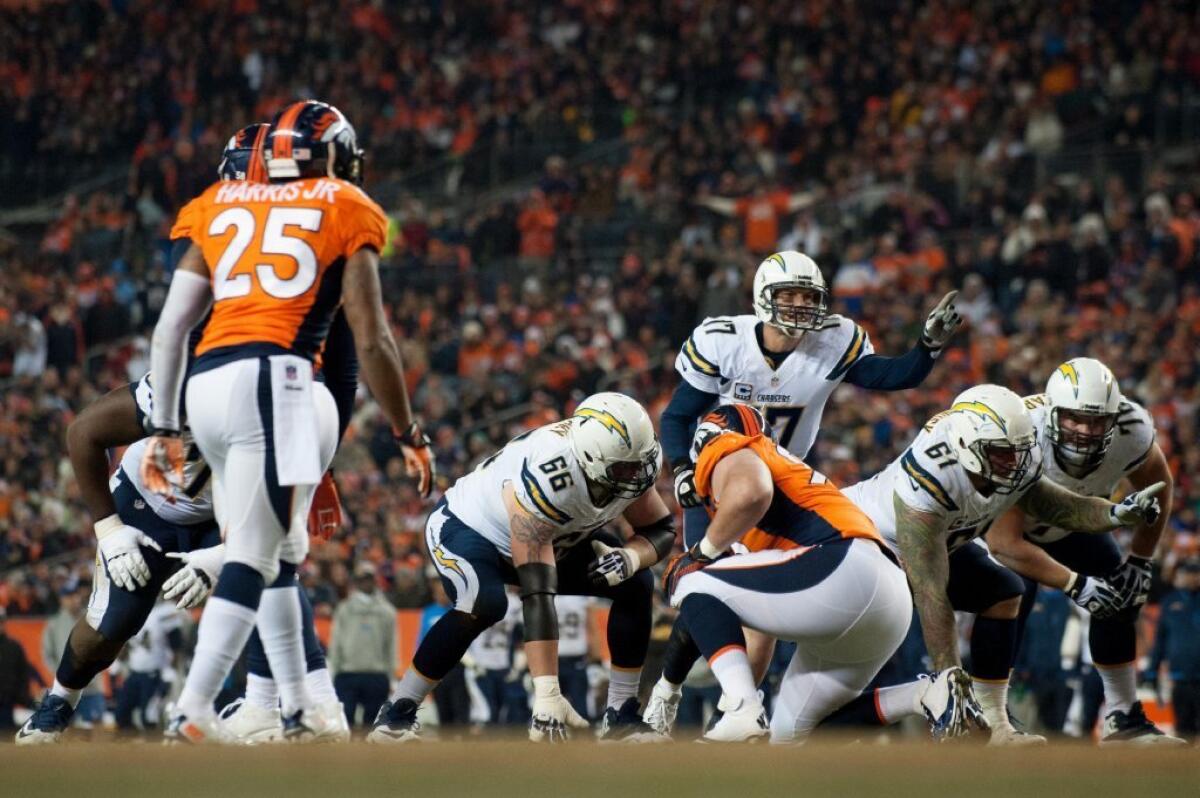FCC wants to eliminate sports blackout rules

- Share via
The Federal Communications Commission wants to eliminate its almost 40-year-old sports blackout rules, which serve primarily to prevent NFL games being televised in markets where the home team failed to sell out the stadium.
In a notice of proposed rule-making released Wednesday, the FCC said the sports marketplace has “changed dramatically” and that the “economic rationale underlying the sports blackout rules may no longer be valid.”
Adapted in 1975, the blackout rules were designed to prevent pay-TV distributors, including cable and satellite operators, from circumventing agreements between sports leagues and television rights holders regarding the blacking out of games that were not sold out.
ON LOCATION: Where the cameras roll
For example, if a San Diego Chargers didn’t sell out a few days before kickoff and thus the broadcaster with the rights to show the game couldn’t, the FCC’s rule prohibits a pay-TV distributor from importing the signal of the game from elsewhere and showing it there.
At the time the rule was introduced, NFL teams’ primary source of revenue was from ticket sales, and there were concerns that if games were shown on television that were not sold out it could encourage fans to stay home.
Now the bulk of revenues for the teams comes from TV and merchandise. Also, blackouts have become a thing of the past. According to the FCC, in 1974 -- the year before the blackout rules took effect -- 59% of regular season games were blocked in local markets. Last year, according to the NFL, only 6% of games were blacked out. This season, only one game has been been blacked out.
PHOTOS: Celebrities by The Times
Media watchdogs, cable and satellite operators and some lawmakers, including Sen. John McCain (R-Ariz.) and Richard Blumenthal (D-Conn.), have been arguing that the rules should be gutted.
“Existing blackout policies quite literally leave fans in the dark, and leagues or programmers that enforce them should not be rewarded with special regulatory status, antitrust exemptions or taxpayer subsidies,” Blumenthal said in a statement.
The NFL and the National Assn. of Broadcasters, the chief lobbying arm for the television industry, want to keep the rules in place.
“We will strongly oppose any change in the rule. While affecting very few games the past decade, the blackout rule is very important in supporting NFL stadiums and the ability of NFL clubs to sell tickets and keeping our games attractive as television programming with large crowds,” a spokesman said.
The broadcasters association said it feared that removing the blackout rules could lead to even more sports migrating exclusively to the world of pay-television.
“Allowing importation of sports programming on pay-TV platforms while denying that same programming to free broadcast-only homes would erode the economic base of local television and hinder broadcasting as an engine for economic growth in local communities,” said a spokesman for the broadcasters association.
While the blackout provisions are typically in all sports contracts, they usually apply only to over-the-air broadcast television and not pay-TV. Since the majority of baseball, hockey and basketball games are on cable, the blackout issue primarily applies to football.
The FCC will seek comments from all interested parties, and a final decision likely won’t be reached until next spring at the earliest.
ALSO:
FCC looks to gut sports blackout rule
FCC Sports blackout rule is more complicated than it sounds
WME and Silver Lake set to gobble up IMG
Follow Joe Flint on Twitter @JBFlint.
More to Read
From the Oscars to the Emmys.
Get the Envelope newsletter for exclusive awards season coverage, behind-the-scenes stories from the Envelope podcast and columnist Glenn Whipp’s must-read analysis.
You may occasionally receive promotional content from the Los Angeles Times.







